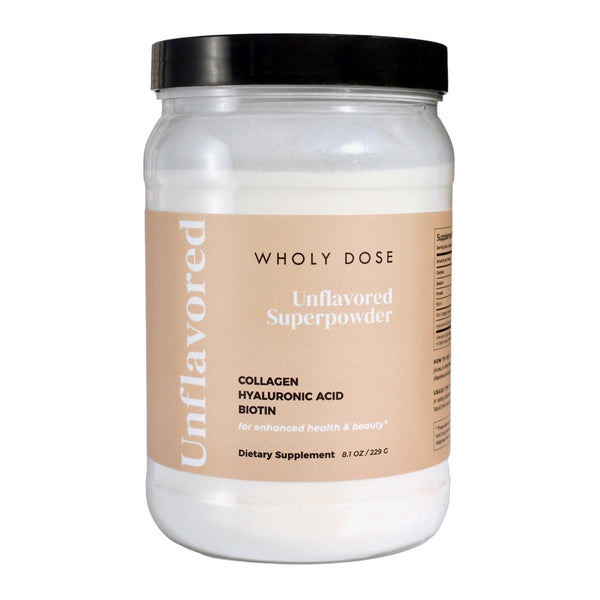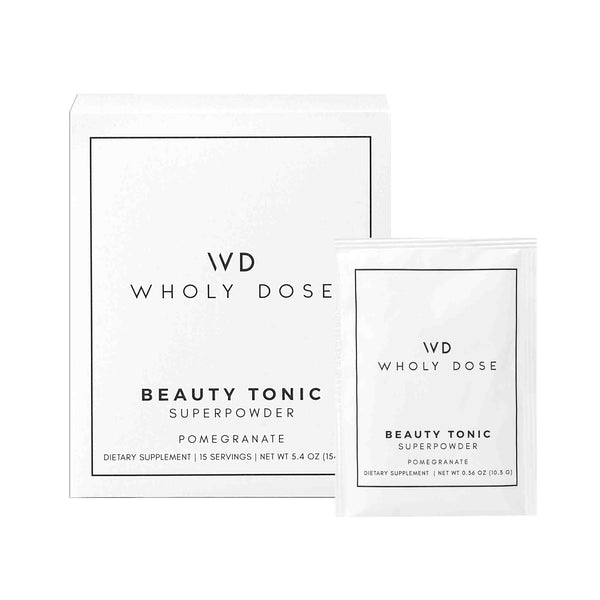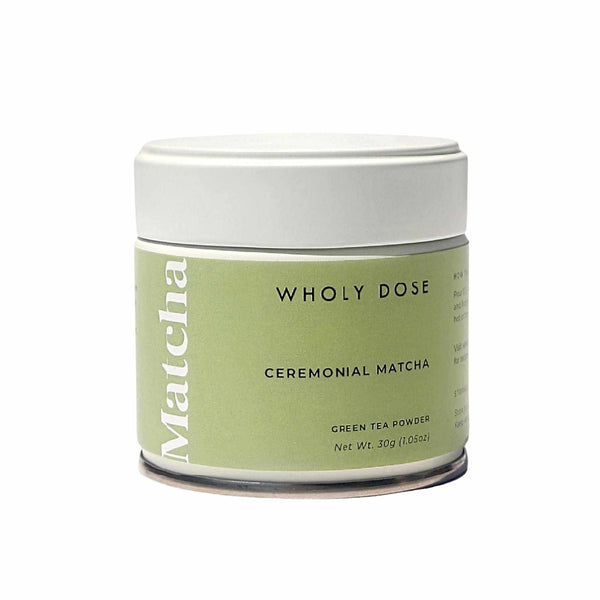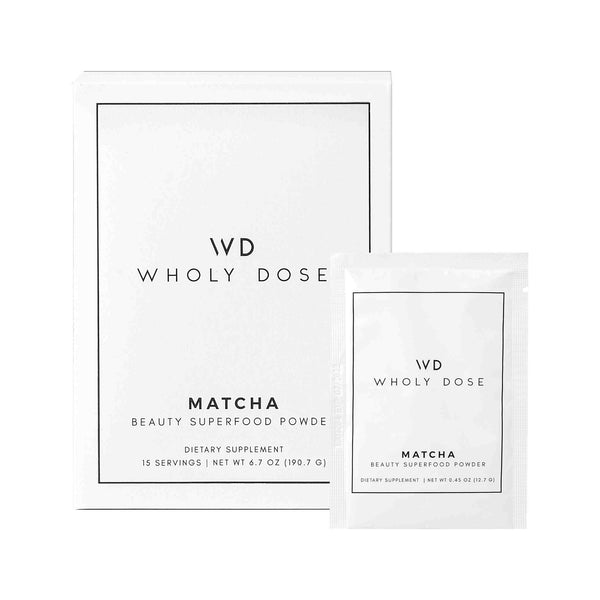
Reality or Myth: Do Anti-Aging Vitamins Work?
According to dermatologists, expensive anti-aging vitamins and skin creams that promise to erase fine lines and prevent wrinkles are not always as effective as they claim. Although many face creams contain antioxidants and other anti-aging vitamins, few are effective in preventing the reversal of skin damage.
At the American Academy of Dermatology's annual meeting in New Orleans, Dr. Karen E. Burke, MD states, "despite advertising claims, almost all available topical formulations contain very low concentrations of antioxidants that are not well absorbed by the skin.” Further citing, “There are three antioxidants that have been proven to decrease the effect of the sun on the skin and actually prevent further damage: selenium, vitamin E, and vitamin C."
Antioxidants, such as those found in matcha green tea, are also known to prevent agents called free radicals from damaging cells in the skin and body. Free radicals, though detrimental to the body and skin, are a result of normal body processes. They can also be created by exposure to a number of environmental factors such as UV rays, smoking, and stress; which deteriorate collagen (skin protein) levels and further speed up the aging process.
Burkes explains that the problem with applying antioxidants topically to the skin to fight aging, is that they are not absorbed well-enough into the skin and therefore only result in short-term effects. However, new research with ingestible beauty has shown that more effective formulations can deliver the antioxidants to the skin barrier through consuming them rather than applying them topically.
Ingredients that contain anti-aging antioxidants that offer anti-aging benefits include:
Selenium
The mineral selenium works to protect the body from various cancers, including skin cancer caused by UV ray exposure. It also promotes the preservation of skin elasticity, slowing the aging process, and hardening the tissues associated with oxidative stress. To consume this antioxidant in your diet, try whole grain cereals, seafood, garlic, or eggs.
Vitamin E
Vitamin E is considered by experts to be the most important antioxidant because it protects cell membranes and fights against damage to essential enzymes that work with them. Natural sources of vitamin E can be found in sunflower oil, grains, oats, nuts and dairy products.
Recent studies have also shown that vitamin E aids inactive free radicals, making them less likely to cause damage. While other studies have shown that applying vitamin E topically to the skin can reduce sun exposure damage and further limit the production of cancerous cells.
Burke states further, "For additional sun protection, individuals may consider taking vitamin E supplements. Supplementation with vitamin E in 400 milligrams a day has been noted to reduce photodamage, wrinkles and improve skin texture."
Vitamin C
While Vitamin E is the most important antioxidant, Vitamin C is the most common antioxidant found in the skin. Similar to vitamin E, this can also be found in vegetables and citrus fruits. It is also consider to be just as valuable as Vitamin E in repairing free radicals and further preventing them from developing cancerous cells or speeding the aging process.
Since vitamin C is most apparent in the skin, the skin is the organ that suffers the most from environmental stressors including smoking, sun exposure, and pollution; all of which deteriorate nutrients in the body.
However, despite this, skin creams that contain vitamin C also make it difficult to be effective because they are also exposed to environmental factors, including, in some cases, an overexposure to oxygen. While several studies are being trialed for more effective forms of topical vitamin C, ingesting vitamin C is found to be the most effective; especially when partnered with other anti-aging supplements such as collagen.
Collagen
Collagen is the most abundant protein in your body and makes up 80% of the skin. It is the glue that holds your body together, and for the outer appearance, it is responsible for keeping your skin looking tight, youthful, and fresh. As you age, the collagen levels in your body naturally deplete, resulting in signs of aging such as wrinkles, fine lines, and dry skin. You can also experience inner signs of aging with collagen depletion such as aching muscles, and joint or bone pain.
Taking a collagen supplement helps assist your body in the natural process of it's collagen distribution, by making up for where your levels have depleted in your skin, joints, muscles, and bones, as well as your hair and nails. A collagen supplement can come in various forms, from pills to powder, and when taken daily, can reverse the signs of aging left by collagen depletion.
REDUCE WRINKLES NATURALLY AND BOOST SKIN HEALTH
Anti-Aging Supplements for Wrinkles
Takeaways
When looking for the best anti-aging supplement or vitamin, look for the ingredients listed above – like collagen peptides or vitamin C – to help keep your skin looking healthy and youthful. Be sure to incorporate them into your daily routine, maintain a healthy diet, get enough sleep each night, and use a face cream to moisturize your skin from the outside.
With the help of anti-aging vitamins and supplements, you can expect natural, youthful skin when taken consistently and when you take care of your health through a balanced diet and proper sleep.















